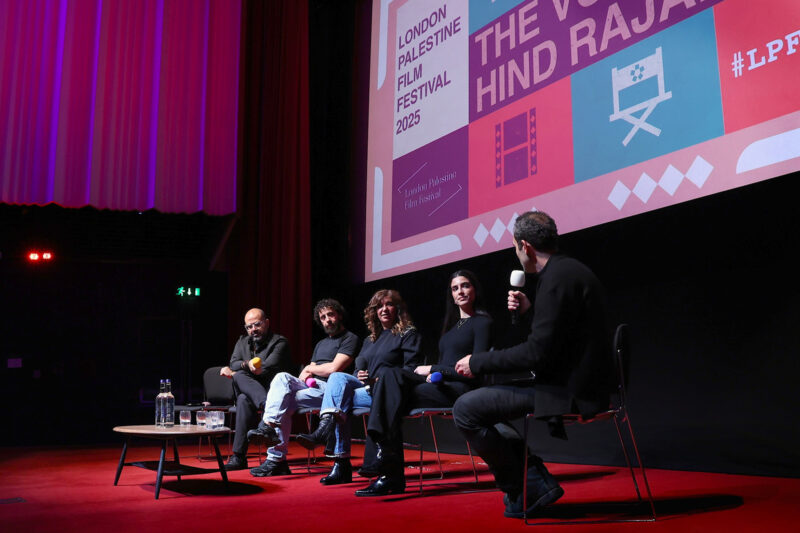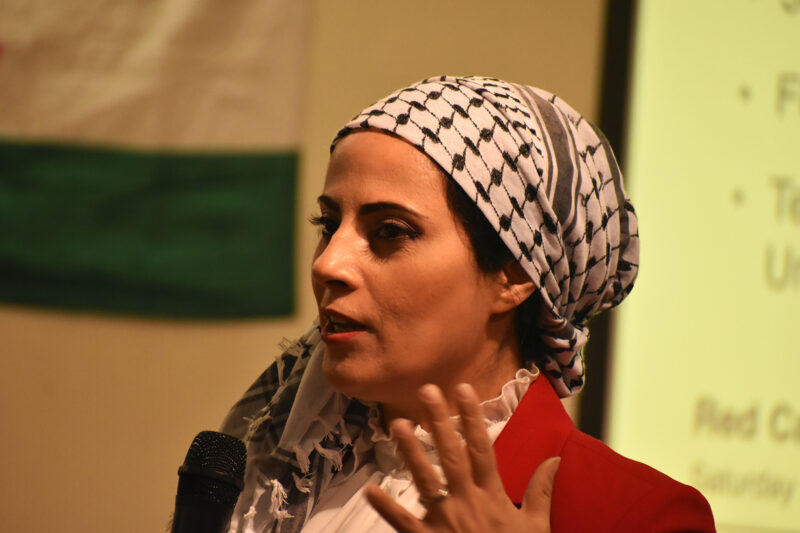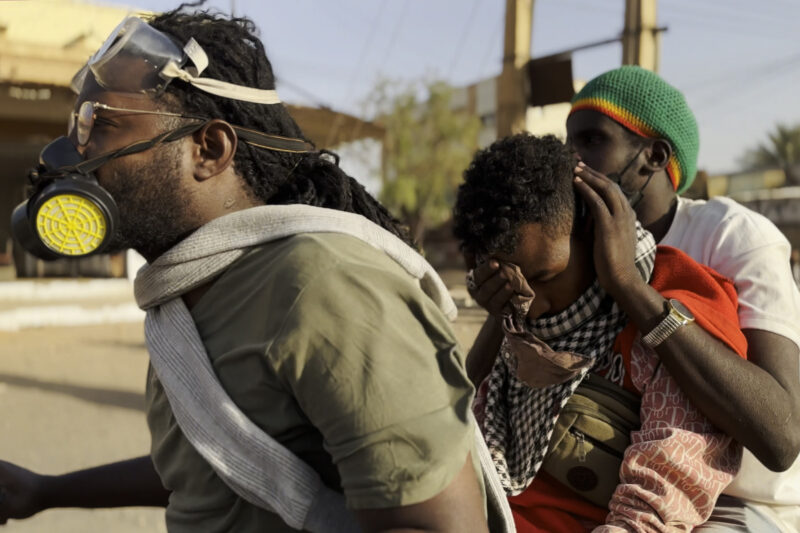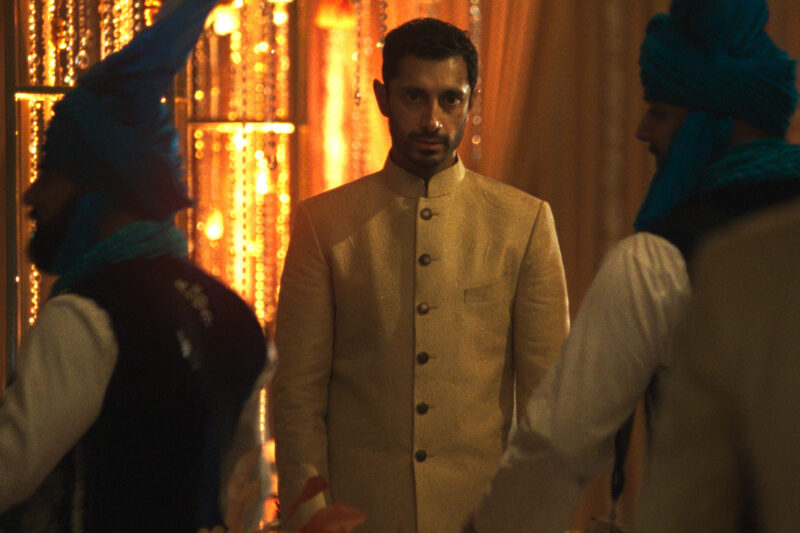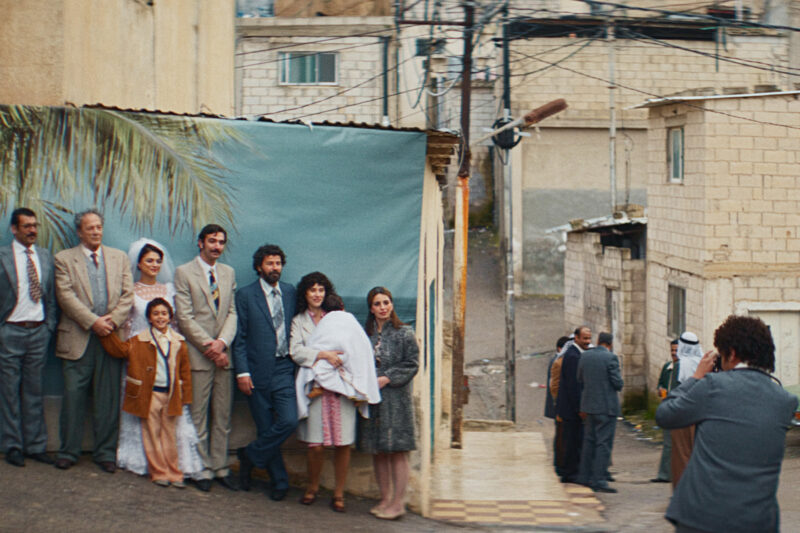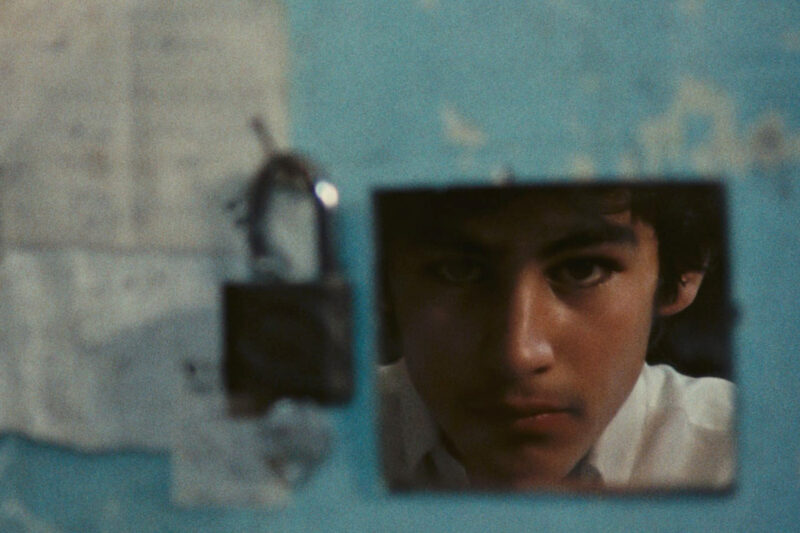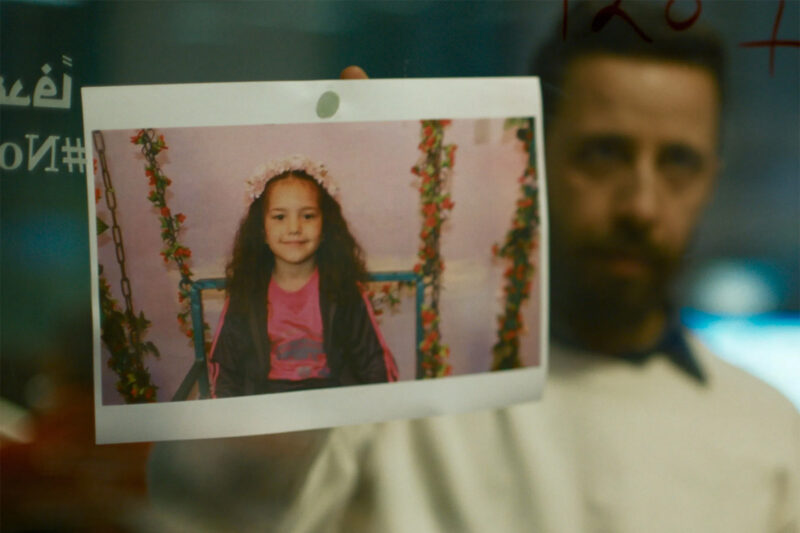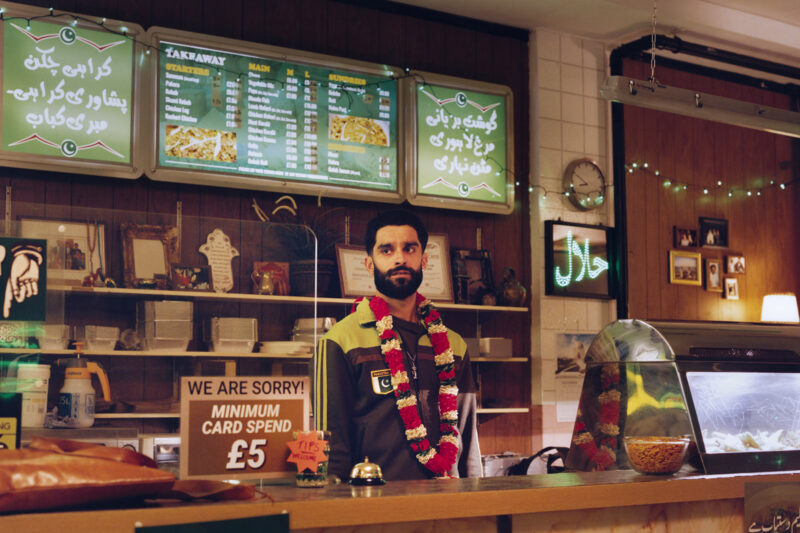‘My intention is to provoke’: why director Laila Abbas made a film about Islamic inheritance laws
The Palestinian director on her feature debut Thank You for Banking With Us!, which traces two sisters who contend with patriarchal inheritance traditions after the death of their father
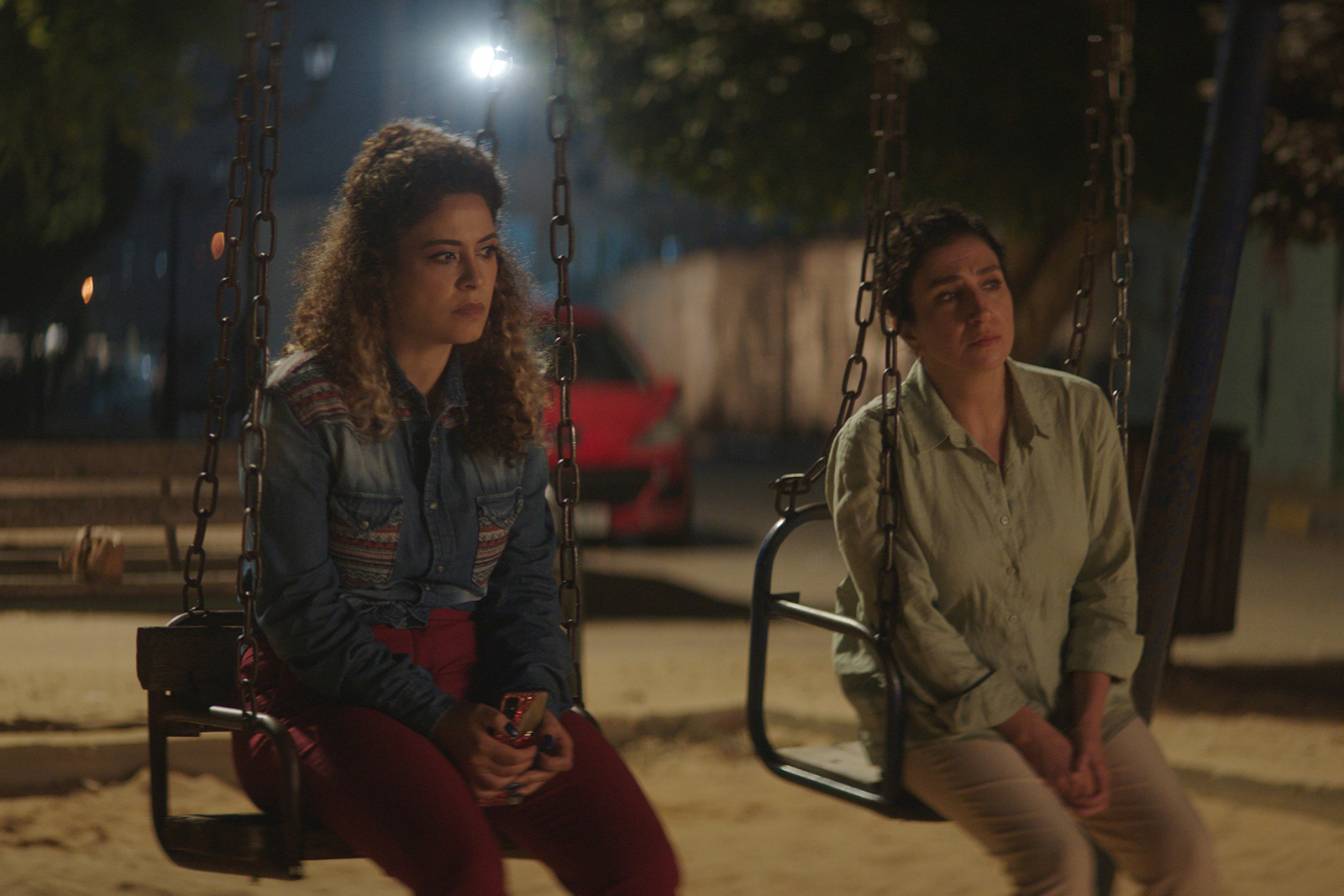
As Laila Abbas prepares for the world premiere of her debut feature film Thank You for Banking With Us! at the BFI London Film festival on 17 October, the Palestinian filmmaker is nervous that she might not reach the UK for the event.
The Israeli border and the British visa authorities remain unpredictable, Abbas notes from her Ramallah home. “I don’t know if I will make it or end up meeting my audience,” she says. “This is the life of a Palestinian — everything needs to be a hundred times harder. This is not new.”
Abbas, who grew up in Nablus before moving to Ramallah, started her career in television before turning to cinema. She graduated from Jordan’s SAE Institute with a film specialism in 2010, and earned a postgraduate scholarship to study production at Royal Holloway, University of London.
She wrote and shot Thank You for Banking With Us! over six years, long before the attacks of 7 October 2023 and Israel’s relentless bombardment in Gaza. The film now premieres a year after the war began. In this context of global mourning, Thank You for Banking With Us! is, above all else, light and hopeful, as it offers audiences a Palestinian narrative beyond war and occupation.
The story follows sisters Noura (Yasmine Al Massri) and Maryam (Clara Khoury), a chalk and cheese pairing, as they contend with patriarchal inheritance laws following the death of their father in Palestine. Noura is a single woman working as a beautician and caring for her father in his final days, meanwhile Maryam is an unhappy housewife and mother of two boys who depends on her unfaithful husband for money. The bickering sisters come together to carry out a scheme that could see them withdraw their father’s life savings before their brother, based in the US, can claim twice their entitlement under sharia law.
In Islamic law, sons are typically entitled to twice the share of inheritance appointed to daughters. If the deceased has no sons, other males in the wider family — per Islamic succession rules — can stake a claim to any inheritance the daughters are bequeathed.
One of three sisters, Abbas says she was personally driven toward making a film on the injustices of these financial conventions after her uncle and his male sons successfully claimed a portion of inheritance from her late father’s assets.
Abbas drew on her own sisterhood to build the charged sibling dynamic between Noura and Maryam, but the characters and their traits were entirely fictitious. Their financial struggle is based on what many Muslim women collectively experience under sharia law. “These things happen around me all the time,” Abbas says. “It’s a big part of death, what happens afterwards to the people left behind and the situation of women after that.”
Abbas earned recognition while working on a number of short films, but is best known for her documentary Ice & Dust (2014), which follows a young Palestinian woman’s journey to seek out a new life in Canada. According to Abbas, her work is not particularly focused on the nuances of womanhood, but human behaviours at large. Abbas felt strongly about shedding a light on this particular aspect of gender inequality after her own exposure to it, and set out to humanise Muslim women’s struggle under patriarchal laws in her feature debut.
“What happened to me and what happens to many women in Palestine, in the Arab world, in the Muslim world, there is something terribly wrong there and we need to talk about it — in a fun way,” she adds.
Exploring a contentious subject, even with joy at the centre, is a tricky line to toe when it comes to financing a film. Thank You for Banking With Us! is a co-production between Palestine, Germany, Saudi Arabia, Qatar, and Egypt. Abbas says that there were teething problems in the beginning of the funding process. She recalls that there would be a lot of excitement about her pitch that would soon turn into fear or scepticism over how outspoken the film was. Many of the countries that stayed involved wanted to ensure that the script did not “collide” with society and religion too harshly.
“I didn’t write that story to please funds or audiences but I felt I needed to tell this story in such a way that I do not repel people. My intention is to provoke,” Abbas says, adding, “but I don’t want people to hate my characters.” She says her film holds a mirror up to Islamic society, and invites them to consider whether these laws still suit our present-day lives.
Peppered throughout Abbas’ film are small acts of patriarchal solidarity, including brothers, uncles, and partners who are quick to tell each other when the women in their lives and homes step out of line. These men are not abusive, but the power they wield is undeniable. “That’s the kind of patriarchy that is more fun to shed light on because it’s subtle but it is patronising,” Abbas says. She recalls discussing these male roles with the actors portraying them, reassuring them that they weren’t written to be “pure evil”. These men believe they are upholding tradition, albeit with a misguided understanding of the family’s best interests.
In Thank You for Banking With Us!, Israel’s occupation exists on the periphery of the story and spills in at times, but it is not this external threat that the film grapples with. Instead, Noura and Maryam contend with gendered entitlement to what is theirs, one that mirrors the entitlement of settlers establishing homes on Palestinian land. “It’s patriarchy and then from the other side colonisation,” Abbas says. “You end up, as a woman, needing to deal with both, and that’s catastrophic.” In her own life, Abbas and her sister are prevented from accessing the small patch of land they inherited from their late father, which has now been categorised as Area C, Israeli-administered land in the West Bank.
It is for this reason, among many others, that remaining in Ramallah is so important to Abbas: “Living here is telling yourself and others that your roots and your connection to this land is not something to be taken lightly.”
Thank You for Banking With Us! premieres on 17 October at the BFI London Film Festival.
 Newsletter
Newsletter


